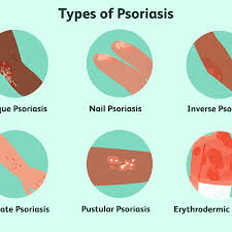NE SCIENCE BUREAU
AHMEDABAD, JAN 13
Psoriasis is a common skin condition that speeds up the life cycle of skin cells and causes cells to build up rapidly on the surface of the skin. As a result, most patients develop thick, red, scaly, painful patches on the skin.
The immune system has a big role to play in the development of psoriasis but other factors such as stress, obesity, infections and heavy alcohol consumption can trigger symptoms as well.

The physical discomfort along with the psychological stigma of the disease often takes a toll on patients, who may look for quick ways to cure the condition or get relief from the symptoms.
Speaking about this, Dr. Bela Shah,Prof & Head, Department of Dermatology, Venereology and Leprology, B.J.Medical College, Civil Hospital, Ahmedabad, said, “On average, I diagnose between 80 and 100 new cases of psoriasis a month. Many patients mistakenly believe that psoriasis can be cured. It is important for them to know that we still do not have any medicines, not even homeopathic or ayurvedic remedies, to cure psoriasis. However, psoriasis can be treated, and its symptoms can be managed. Dermatologists are able to customize treatment for patients based on a detailed case history and physical examination to assess the type and severity of the condition. Once treatment has been begun, patients must take their medicines exactly as prescribed by their doctor.”
Diagnosis and treatment
In general, dermatologists may prescribe medicated creams and ointments that are applied on the skin to treat mild to moderate psoriasis. Natural or artificial light therapy (UVA and UVB rays) may be recommended in combination with medication. In case the psoriasis is severe, or a patient does not respond to other treatments or has other systems involved, the dermatologist may recommend oral medication or biologic injections.
Most common types of psoriasis
The most common types of psoriasis are: plaque psoriasis, nail psoriasis, pustular psoriasis, inverse psoriasis and guttate psoriasis.
Guttate psoriasis is more common in younger patients while plaque psoriasis is more common amongst middle aged adults between 30 and 40 years of age.
Psoriasis is a chronic problem and adherence to treatment as well as regular follow-ups with a dermatologist is usually necessary. In addition to medication, being physically active, reducing stress, not smoking, and moisturising the skin regularly can help to improve symptoms and reduce the occurrence of psoriasis flares, says Dr. Shah.









